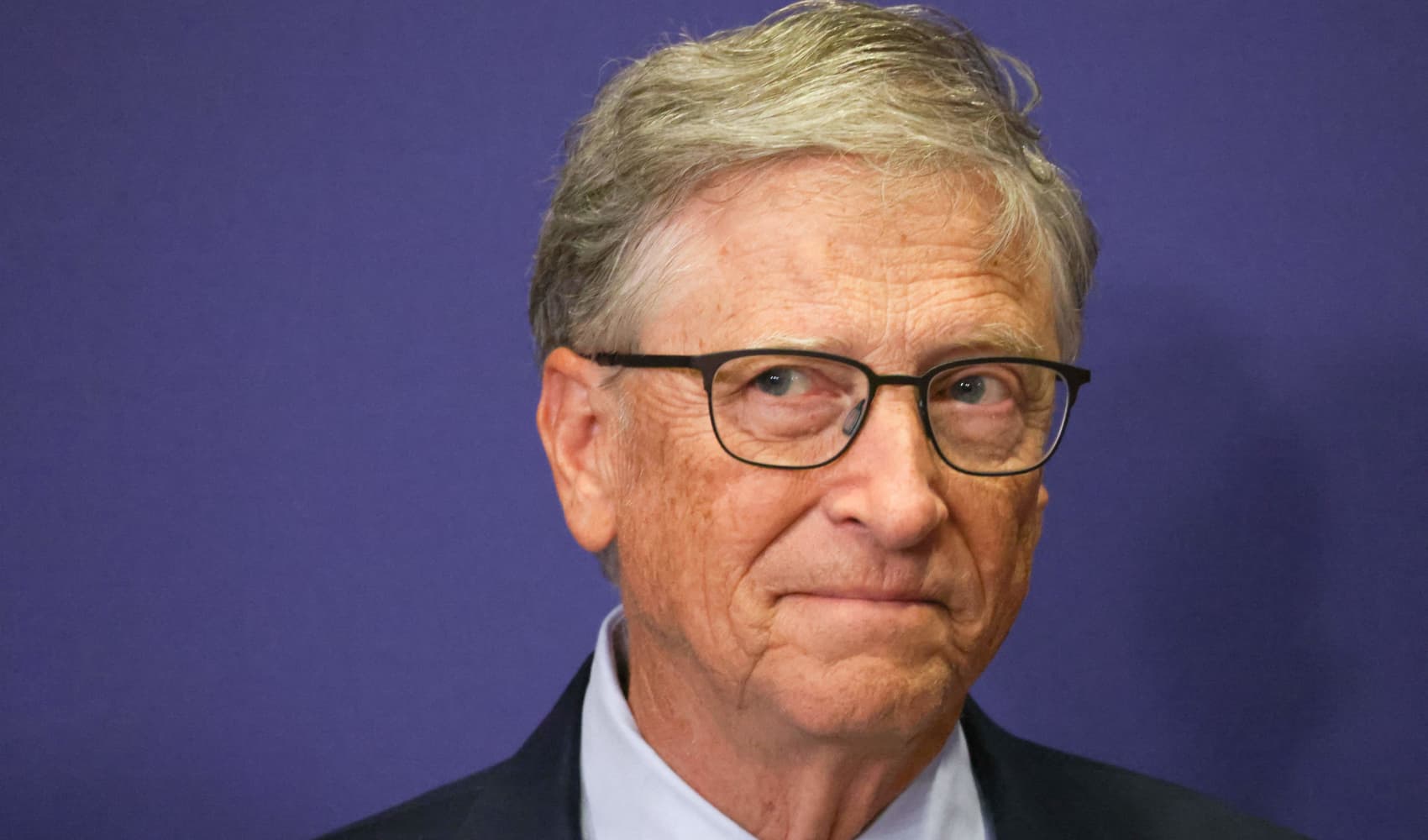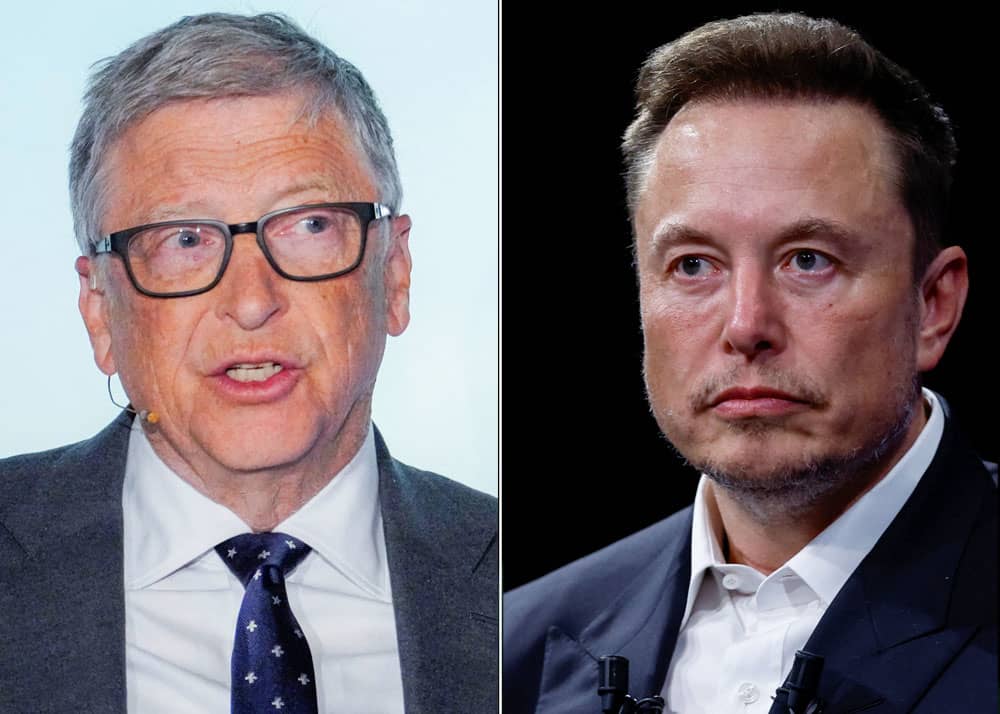Bill Gates $200B: Can Charity Replace Government Cuts?
Bill Gates Commits $200 Billion to Charity: Can Philanthropy Fix What Governments Break?
Introduction: A Tidal Wave of Giving
Hold on to your hats, folks! Bill Gates just announced he's doubling his charitable giving to a staggering $200 billion over the next 20 years! That's right, we're talking about a philanthropic tsunami aimed at tackling some of the world's biggest problems. But the big question remains: can even that amount of money truly fill the gaps left by government cuts and systemic issues? Let’s dive in and explore what this means, what Gates himself has to say about it, and whether it's enough.
Bill Gates' Grand Plan: Giving it All Away
Bill Gates has made it clear: he doesn’t want to die rich. He envisions a future where his wealth is used to solve global challenges, not simply accumulated. In a recent blog post, he stated he wants to give away "virtually all" of his wealth in the coming decades.
Echoes of Carnegie: A Legacy of Giving Back
Gates cited the late Andrew Carnegie as inspiration. Carnegie, another titan of industry, famously advocated for using wealth to benefit society. This sentiment reflects a growing trend among billionaires to use their fortunes for the greater good.
The $200 Billion Breakdown: Where Will the Money Go?
So, where exactly will all this money go? The Bill & Melinda Gates Foundation focuses on a wide range of issues, including:
- Global Health: Eradicating diseases like malaria and polio.
- Poverty Alleviation: Improving living standards in developing countries.
- Education: Expanding access to quality education for all.
- Climate Change: Investing in clean energy and sustainable solutions.
Taking Aim: Gates vs. Government Cuts
While the sheer scale of Gates' commitment is impressive, he's also highlighting a critical issue: the growing gap created by government cuts in crucial areas. He specifically pointed out that philanthropy can't fully compensate for these reductions.
The Elephant in the Room: Can Philanthropy Fix Everything?
Let's be honest, even $200 billion is a drop in the bucket compared to the trillions of dollars governments spend (or don’t spend) on critical programs. Can philanthropy truly solve systemic problems rooted in political decisions and budget priorities?
Elon Musk and DOGE: A Tangential Jab?
Reports suggest that Gates also indirectly took aim at Elon Musk and the cryptocurrency DOGE. This seems to highlight a tension between technological innovation and the more traditional, established methods of philanthropy. Is he suggesting that resources directed towards speculative ventures could be better allocated to addressing pressing global issues?
The Limits of Philanthropy: A Hard Truth
Philanthropy is undoubtedly valuable, but it has limitations. It's often driven by the personal preferences of donors, may lack the accountability of government programs, and can be subject to inefficiencies. It's like using a sponge to drain an ocean – helpful, but ultimately insufficient.
Systemic Change vs. Band-Aid Solutions
The core problem lies in systemic issues. Can charitable donations truly address the root causes of poverty, disease, and climate change, or are they merely band-aid solutions? Some argue that philanthropy, while helpful, can sometimes distract from the need for fundamental policy changes.
The Role of Government: Essential and Irreplaceable
Governments have a unique role to play in addressing societal challenges. They have the power to enact laws, allocate resources on a massive scale, and ensure accountability to citizens. Ultimately, governments are essential for creating lasting, sustainable change.
Accountability and Scale: The Government Advantage
While philanthropic organizations can be nimble and innovative, governments have the advantage of scale and accountability. They are responsible to their citizens and can implement policies that affect entire populations.
The Power of Collaboration: Philanthropy and Government Working Together
The most effective approach involves collaboration between philanthropic organizations and governments. When these two forces work together, they can achieve far more than either could alone. Imagine the possibilities when the innovation and flexibility of philanthropy are combined with the scale and accountability of government.
A Synergistic Approach: Amplifying Impact
By aligning their goals and resources, philanthropy and government can create a synergistic effect, amplifying their impact and driving meaningful change.
Looking Ahead: What Does This Mean for the Future?
Bill Gates' commitment is a powerful statement about the importance of giving back. It also serves as a reminder of the critical role governments play in addressing global challenges. The future will likely involve a greater emphasis on collaboration between these two sectors.
Inspiring Others: The Ripple Effect of Giving
Hopefully, Gates’s pledge will inspire other wealthy individuals and corporations to increase their charitable giving and engage in meaningful partnerships with governments and nonprofits.
Is $200 Billion Enough? A Reality Check
Let's be realistic: even $200 billion isn't a magic bullet. It's a significant contribution, but it's crucial to remember that systemic change requires more than just money. It requires political will, policy reform, and a collective commitment to creating a more just and equitable world.
Conclusion: A Call to Action
Bill Gates' massive commitment to philanthropy is admirable and will undoubtedly make a positive impact. However, it also highlights the limitations of relying solely on charitable giving to solve complex global problems. The real solution lies in a combined effort: responsible philanthropy, effective governance, and a collective commitment to addressing the root causes of inequality and injustice. Let’s hope this act sparks meaningful change beyond just the financial contribution itself.
Frequently Asked Questions (FAQs)
Here are some frequently asked questions about Bill Gates' charitable giving and the role of philanthropy:
- How will the Bill & Melinda Gates Foundation ensure accountability for the $200 billion in donations?
The Foundation has a robust system for monitoring and evaluating its programs, including independent audits and transparent reporting. They also work closely with partner organizations to ensure that funds are used effectively and efficiently.
- What are the potential downsides of relying too heavily on philanthropy to solve societal problems?
Philanthropy can be driven by the personal preferences of donors, lack accountability compared to government programs, and may not address the root causes of problems, potentially leading to temporary or insufficient solutions.
- How can individuals contribute to solving global challenges, even if they don't have billions of dollars to donate?
Individuals can contribute by volunteering their time, donating to effective charities, advocating for policy changes, and making conscious consumer choices that support sustainable and ethical practices.
- What role does technology play in the Bill & Melinda Gates Foundation's philanthropic efforts?
Technology plays a crucial role. The Foundation invests heavily in research and development of new technologies to address global health challenges, improve agricultural productivity, and expand access to education. They also leverage technology to improve data collection and program evaluation.
- Is there a risk that large-scale philanthropy can create dependencies or distort local economies in developing countries?
Yes, there is a risk. The Foundation is aware of this and works to ensure that its programs are designed to empower local communities, promote sustainable development, and avoid creating dependencies. They prioritize partnerships with local organizations and invest in building local capacity.


